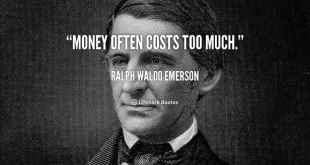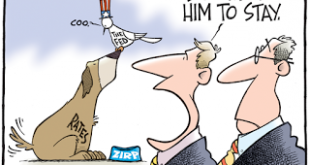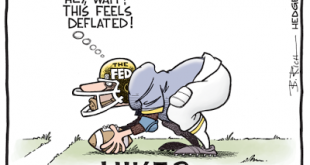At the ICAEW's conference "Do Banks Work?" last week, there was a fascinating interchange between Ian Gorham of Hargreaves Lansdowne and RBS's Ross McEwan. Apparently RBS had refused a large deposit from Hargreaves Lansdowne, to the irritation of the asset manager. "There is a problem placing client money", said Gorham. And he went on: "Banks don't need people's savings, because they now have much more capital to support lending. This means that savers receive much lower interest rates on...
Read More »Factory orders, ISM non mfg, ECB news
Yes, they were up, but there is a ‘seasonal’ aspect to it, including an air show, so the year over year chart is a bit more indicative of what’s going on and it’s still in negative territory. Also, vehicle orders declined, and inventories remained at levels that beg continuing production cuts. Factory OrdersHighlightsFactory orders bounced sharply higher in October and, together with the bounce higher for manufacturing in the industrial production report, confirm what was a very solid month...
Read More »Eurodespair
In my last post, I warned about "siren voices" calling for tighter monetary policy while the Eurozone economy is stuck in a toxic equilibrium of low growth, zero inflation and intractably high unemployment. Specifically, the so-called "German Council of Economic Experts (GCEE)" has called for the ECB to reduce or unwind QE: ...the European Central Bank should slow down the expansion of its balance sheet or even phase it out earlier than announced. Of course, the GCEE is only concerned...
Read More »Jensen: How long bonds could actually outperform equities
In-depth analysis on Credit Writedowns Pro. Editor’s note: This was originally published by Absolute Return Partners in late August. So we are a little late in releasing it. Apologies. It is still good reading. The Absolute Return Letter, August/September 2015: Doodles from an eventful summer “There is something deeply troubling when the unthinkable threatens to become routine.” Bank for International Settlements Incidents of the summer 2015 This month’s Absolute Return Letter is a...
Read More »The Great Yield Divergence
When a former Bank of England deputy governor gives a presentation entitled "Are Low Interest Rates Natural?" to a extraordinarily high-powered audience of academics and monetary policymakers, you can bet he will come up with some great charts. Charlie Bean's historical analysis of long-term real and nominal yields in the UK is amazing: It is very evident that for most of the last 200 years, nominal and real consol yields have been pretty much pinned together. Charlie said that the gold...
Read More »The Fed’s IOER policy is not “paying banks not to lend”
Mainstream media get this wrong all the time. The latest to go down the "paying banks not to lend" rabbit hole is Binyamin Appelbaum in the New York Times. Because he didn't understand how IOER works, he didn't understand the Fed's strategy, and wrote a post that gets it quite seriously wrong. So I've written a Forbes post attempting to set things straight. Here's a taster: The FOMC has decided not to raise interest rates – for now. But it’s still widely expected that rate rises will come...
Read More »On the Fed’s decision at the Rick Smith Show
[embedded content]
Read More »Fed keeps interest rate close to zero
The Fed has left the interest rate unchanged... for now. One dissident vote for raising the rate now. The main reason according to the press release is that: "Recent global economic and financial developments may restrain economic activity somewhat and are likely to put further downward pressure on inflation in the near term." Pressures for a hike in October or December will increase significantly, even if the official position is vague enough. They say: "The Committee anticipates that it...
Read More »Even The Economist is against raising the interest rate
In the last issue, The Economist suggests that the Fed should not be concerned too much with inflation, and that they should not raise the interest rate for now. They say: "Weak wage growth suggests that there is still lots of slack in the labour market. Underemployment, which includes workers who are part-time but want a full-time job, and discouraged workers who might be tempted back into the labour force, stands at just over 10%, higher than before the crisis. This measure probably has...
Read More »The real purpose of central banks
One of the things that has emerged from the PQE debate is a suggestion that it is time to consider ending the Bank of England's inflation-targeting mandate. Unfortunately this got mixed up with calls for ending the operational independence of the Bank of England (Richard Murphy), or abolishing central banks (Bill Mitchell, stated in response to a question at Reframing the Progressive Agenda).What we might call the "twin peaks" approach to macroeconomic policy-setting has been adopted the...
Read More » Heterodox
Heterodox








